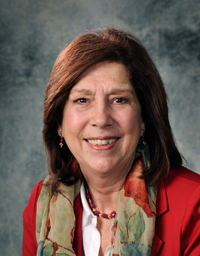Working Party on Education Annual Report – July 2016 to June 2017

 Photo: the Working Party meets in Rio.
Photo: the Working Party meets in Rio.
Prof Val Wass OBE, chair of the WONCA Working Party on Education (WWPE) provide the Annual Report of the working party for July 2016 to June 2017
“
You must be the change you want to see in the world.” Mahatma Gandhi
1: Background
The WWPE functions as an open group with the aim of developing a vibrant, interactive and supportive network of educationalists across the globe who will catalyse change. Many of our individual national challenges are mutual. Recruitment to, training for and retention of family doctors worldwide remains a major issue. We have identified an urgent need to join to address this. Without an appropriate workforce for primary care delivery, it is difficult to envisage delivery of the WONCA Rio statement calling for “all countries to increase the number of family doctors to achieve high quality comprehensive primary care and universal health coverage.” We have a responsibility to raise the status of family medicine as a career- and believe this is an urgent priority for WONCA to address.
2: New leadership
At the Rio conference where Professor Allyn Walsh handed over the baton of leadership to myself, Val Wass, after six years of most inspiring and effective leadership.
3: Redefining our aims
2016-2018 strategy: In Rio we defined our strategic priority aims:
3:1
Raise the status of FM in the undergraduate (UG) curriculum: Lobby through WONCA to influence the UG curriculum to support the Singapore and Rio statements. We aim to (i) improve the status of the discipline (ii) attract the brightest and best into FM (iii) foster high Academic status for FM.
3:2
Programme accreditation: Continue to build on the published WONCA standards for PG and CPD education building a resource for WONCA to support programme accreditation. Work to promote PG training CPD for FM particularly for underserved areas.
3:3
Sharing resources: Develop processes for sharing education resources both within the Working Party and across the WONCA networks and for producing guideline documents applicable across the continuum of education.
4: Communication
Redefining the working group: It has taken some time to work through the mailing list to identify active versus non-active members of the WWPE. We currently stand at 99 active members from 45 countries. I am very grateful to Karen Flegg for her help in improving access to the website and enabling regular updates. The plan is to now attempt an active google chat group while at the same time circulating 4-6 updates per year to the full circulation list. Whether an executive group over and above the open group is necessary remains undetermined.
5: Progress against strategic aims
5:1
Raise the status of FM in the UG curriculum: Building on a workshop held at Rio 2016, two further workshops have been held at the WONCA rural conference in Cairns (focused on social accountability) and at WONCA Europe in Prague. There is undoubtedly strong interest in improving the status of family medicine in the UG curriculum globally. The workshop in Prague in June concluded with the following actions:
1: We need to lobby and impress specialist power brokers who influence the curriculum.
2: All medical schools should establish/ improve /strengthen a Department of General Practice.
3: Family medicine needs to be represented in some way in every year of the UG curriculum. It can be a problem if only introduced late in the curriculum; start early and increase exposure.
4: We need to gain territory from other specialities and the influence they have on students
A further workshop has been submitted to the Asia Pacific conference in November after which a decision needs to be made on how to take this work forward. A symposium at WONCA World 2018 might focus thought.
The group also proposes and is working to involve medical students more in WONCA to promote Family Medicine as a career pathway and actively engage young doctors in the WWPE.
5:2
Programme accreditation: The CPD standards were approved at the World Council in Rio. Allyn Walsh and Victor Ng have kindly agreed to continue to work on standards. We plan a CPD workshop for the WONCA Asia Specific conference and a leading article for Education for Primary Care on CPD standards. The standards undoubtedly provide an excellent platform on which WONCA can build accreditation and quality assurance of education programmes worldwide.
5:3
Sharing resources:
5:3:1 The journal Education for Primary Care produced a special WONCA issue in September 2016 which was well received. Several actions to widen access to the journal have been approved: (i) Taylor and Francis agree to support a third non-UK deputy editor; Ian Wilson in Australia was appointed to this role. (ii) Access to the journal is now available in Australian Universities. (iii) A series of six articles on training for patient safety is now free access (iv) We have negotiated a free access for one month to one article per issue which have been advertised in the WONCA news and widely accessed. We plan, with the SIG on migrant care, a series on training for dealing with migrants in 2018.
5:3:2 Workshops sponsored by WWPE have been held in 2017 at the WONCA World Rural Health Conference (Cairns) and WONCA Europe (Prague) and have been submitted for Asia-Pacific (Pattaya). We are focusing educationally on formative assessment in the workplace and plan to produce a guide to assessment as a WONCA resource.
I thank the President, Chief Executive and the Executive Committee for their ongoing support which is much appreciated and Karen Flegg for her unstinting help with the website and news dissemination.
Annual reports provide an excellent opportunity to reflect and 2018 must be the opportunity to produce a WONCA strategy for engaging with medical students and medical schools globally to promote careers in Family Medicine. “We must be the change we want to see in the world.”
Join our working party